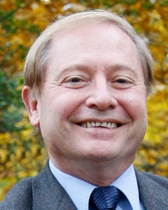Gregory L. Freeze
Brandeis University

Gregory L. Freeze (Ph.D. Columbia University) is the Raymond Ginger Professor of History and chairman of the History Department at Brandeis University. His primary teaching interests are modern Russian history, with a particular focus on religious and social history. As a student of the "new social history" of the 1970s, Freeze initially focused his research on the parish clergy--an important segment of Russian society, yet totally ignored by prerevolutionary, Soviet, and Western scholarship. The dissertation director was Marc Raeff; the dissertation committee included Fr. Georges Florovsky. That dissertation led to two archivally-driven monographs, one on the formation of the clergy as a caste in the eighteenth century, and a second on attempts to transform that caste into a new professional class of pastors in the nineteenth century. In the 1980s, however, the "new cultural history"--shifting focus from class to culture--opened new perspectives for historical research, and this new approach had a strong impact on Freeze's research. Above all, it meant a shift in focus from the clergy to "everyday religion," especially the meaning of Russian Orthodoxy for popular religion and the worldly lives of believers. That led to numerous publications on the religious politics of canonization, patterns of religious observance, the interplay of religion and social institutions (above all, the family, marriage, and divorce). Freeze also became actively engaged in the new field of transnational history, teaching the core course in globalization studies and framing his newer research in the broader transnational context of cultural transfer. He was also an active participant in two major projects supported by the Russian Science Foundation, one on the problem of ethno-cultural history of modern Russia, the other on “entangled histories” of Catholicism and Orthodoxy in the Soviet period.
View Articles:
The "Long" Church Council of 1917-1918: Institutional Crisis, Intellectual Capital
Konstantin Pobedonostsev: Law, Religion, and Russian Conservatism
